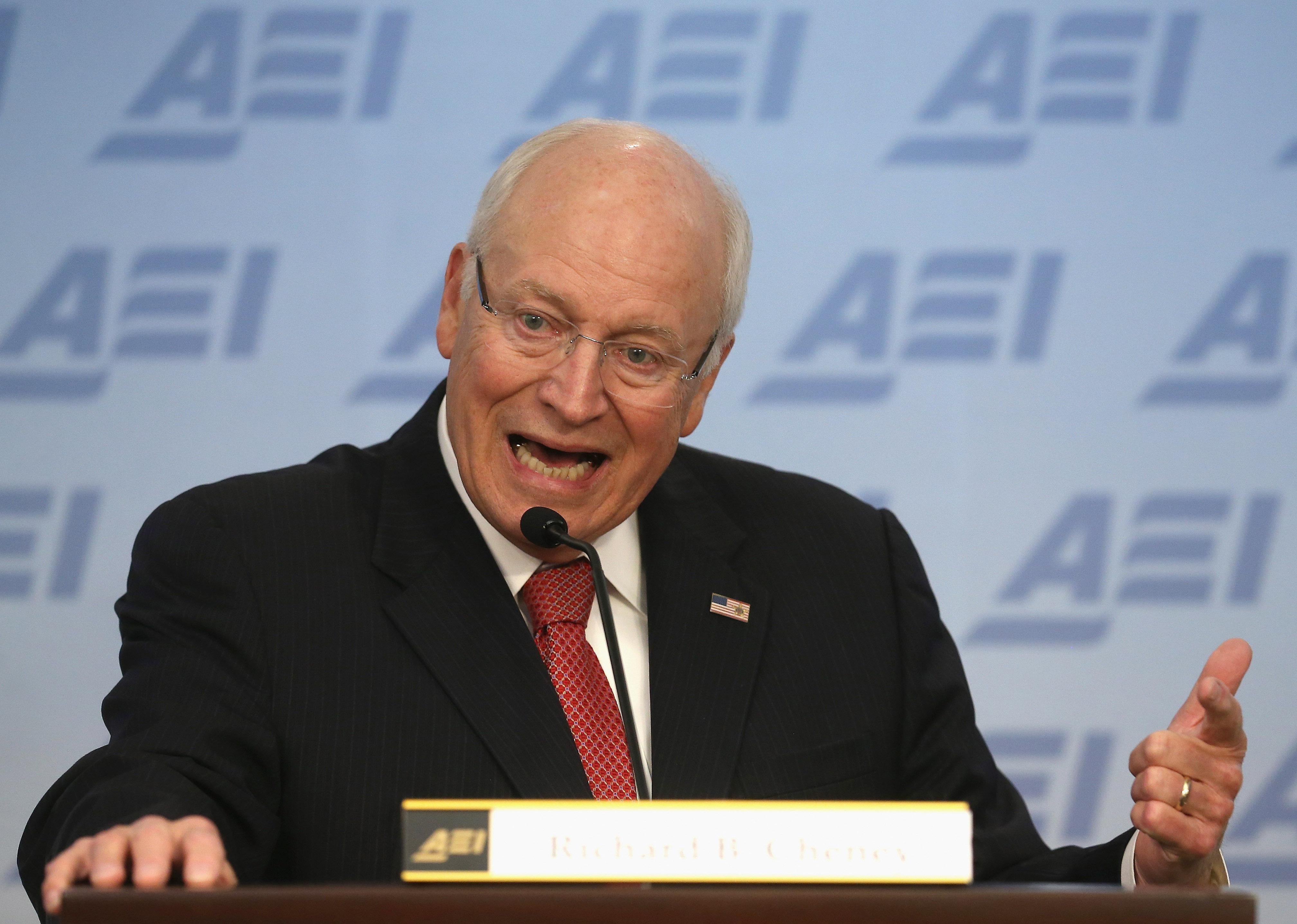As Ebola spreads from Manhattan to Mali, and several hundred thousand doses of a vaccine are projected to be ready by 2015, many experimental drugs being researched and used can be traced back to an unexpected source: Dick Cheney. In the aftermath of the Sept. 11 attacks, Cheney’s fear of America’s possible vulnerability to bioweapons led to a surge in defense spending for experimental drugs that had previously received far less in the way of funding, according to a Bloomberg piece. Research was funded less for fear of the kind of outbreak taking place now and more because of fears Ebola might be used against the U.S. in an act of terrorism.
From Bloomberg:
Cheney, then the vice president, said he feared assaults by bioterrorists could be far more devastating than what happened that day, and became an advocate in the George W. Bush White House for the appropriation of billions of dollars to stop deadly pathogens. Congress agreed, funds began flowing to scientists… and breakthroughs followed.
At least seven drugs now being tested – including some used to treat Ebola victims in the U.S. – grew from biodefense measures first approved after Sept. 11. The National Institute of Health budget for studying potential bioterrorism agents has grown to $1.6 billion from $53 million in 2001, according to Crystal Boddie, an associate with the UPMC Center for Health Security in Baltimore, Maryland.
One of the major legislative components of the Bush administration’s anti-bioterrorism strategy, and one that Cheney championed at the time, was the Project Bioshield Act, which was passed a decade ago and allocated $5.6 billion over 10 years to be spent researching countermeasures against chemical, biological, radiological, and nuclear attacks. Through a combination of funding increases, the budget for Ebola research grew from less than $1 million in 2000 to more than $42 million in 2013.
Meanwhile, the funding landscape for science research in America is otherwise a bleak one. Francis Collins, the director of the National Institutes of Health, has said the NIH has lost a quarter of its purchasing power over the last decade due to inflation and can now fund so few proposals that it runs the risk of driving talented scientists abroad in search of better opportunities.* Some believe the Ebola panic could serve as a wakeup call that stimulates funding—Sens. Elizabeth Warren and Orrin Hatch are currently at work on a proposal to increase NIH funding by $1 billion annually over the next decade.
Read more of Slate’s coverage of Ebola.
Correction, Oct. 26, 2014: This post originally misstated the name of the National Institutes of Health.
